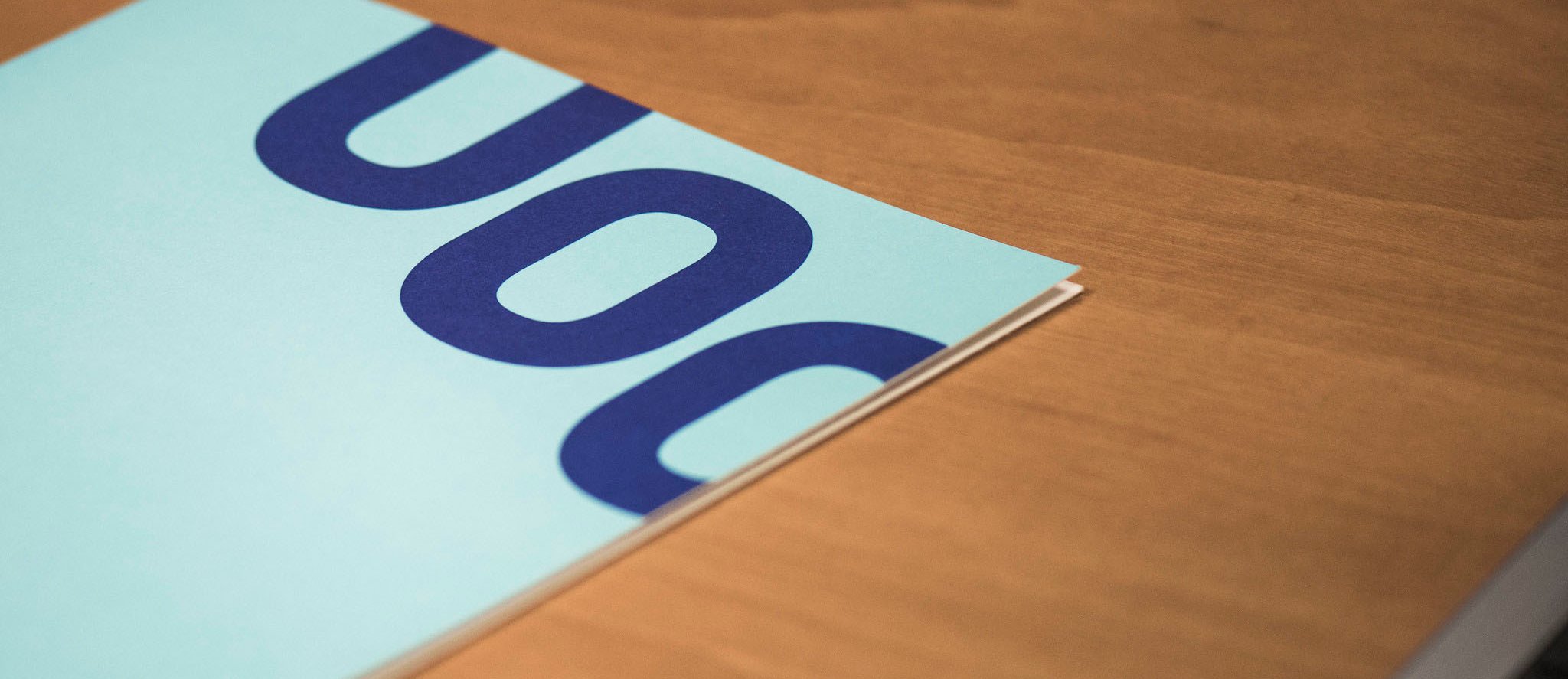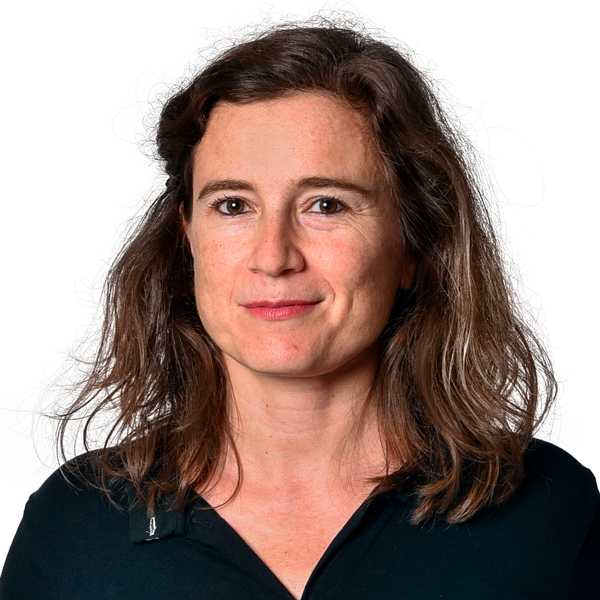Present and future of the UOC's scholarly journals
Subject: Multidisciplinary
The 7th Scientific Publishing Seminar has been organized as a forum for reflection on the journals' evolution to date and their future challenges.
On 11 June, the UOC held its Scientific Publishing Seminar, coordinated by Elsa Corominas, executive editor of the journal ETHE. This year, the seminar was held online, with a highly participative format, to share good practices and improvement proposals related with the UOC's scholarly publishing.
The seminar was attended by 23 participants, including academic staff who are members of the scholarly and dissemination journals' editorial teams; representatives from Library and Learning Resources; the deputy general manager of Research and Innovation, Mònica de Forn, and the vice president for Strategic Planning and Research, Marta Aymerich.
As is the tradition in these seminars, the session was opened by the Vice President, who highlighted the growth experienced by the scholarly journals in internationalization, readership and gender parity in the articles' authorship. In line with the institutional strategy, achieving these milestones helps promote the UOC's research and innovation and strengthens the University's commitment to open access.
In this year's seminar, the scholarly journals' editors briefly outlined the current status of the publications they represent and analysed their strengths and challenges. Among other things, they emphasized the good rapport with the co-publishing institutions and the creation of research networks with other centres and institutions.
Where are we going: reflections on the scholarly journal system
Each speaker mentioned aspects that needed improving, such as the need for more support in disseminating the published content or maintaining the professionalization of the journals' management to adequately plan for the journals' growth and consolidation.
The seminar also reflected on the role of the dissemination journals within the University's ecosystem, the possibility of establishing collaborations between scholarly and scientific publications to generate new articles or the importance of fostering the dissemination of scientific content to a non-scientific audience. It also acknowledged the quality of the journals' management model and the role played by the Library team.
Part of the reflections corresponded to the five hypotheses analysed in this article by Ciro Llueca, director of Library and Learning Resources, on scholarly publishing:
- The journals contribute and must continue to contribute to the University's strategy.
- With the journals' professionalization, their academic management should focus on the strategic aspects while the management teams focus on the rest.
- The main challenge, with the demand for sustainability and quality, is dissemination.
- It is possible to engage in reflection on the areas where effort should be focused.
- Another necessary task is to define the fit of the dissemination journals and other communication tools in the journal ecosystem.
Where we've come from
The representatives of the different journals described their current situation.
Dr. Pau Alsina, journal editor
Artnodes is an interdisciplinary scholarly journal that addresses issues related with art and technology. Celebrating its 20th anniversary next year, it publishes two issues a year (January and July), with monographic dossiers edited by international experts. For example, the latest issue, node 25, was coordinated by Mónica Bello, art curator and director of the Arts at CERN project, and the artist Andy Gracie. In recent years, the journal has collaborated with institutions, research groups and networks around the world, such as the Cluster for Artistic and Experimental Research (CAiRE) or the Museo Nacional Centro de Arte Reina Sofía (MNCARS). Artnodes' Twitter account has also shown growth in recent times.
Dr. Josep Maria Duart, journal editor
This is a publication with fifteen years of history behind it. It is currently co-published by four universities: the University of Los Andes (Colombia), Dublin City University (Ireland), the Vytautas Magnus University in Kaunas, Lithuania, and the UOC. Published by the international group Springer Nature since 2016, it has considerably increased its visibility and internationalization in the academic world, positioning it as one of the leading journals in research on e-learning in higher education. Last year, almost 800 articles were received and growth is continuing this year, with approximately 470 articles received during the first half of the year. ETHE also has a significant presence on Twitter and Facebook. The SJR and CiteScore2019 update has been published recently, which has put it in the top quartile of the three categories in which it is present.
Dra. Olívia Gassol, journal editor
This journal has been co-published by the Pi i Sunyer Foundation and the UOC since it first appeared in 2013. It focuses on research on social and intellectual movements and contemporary democratization processes. The editorial team has undertaken a transformation of the journal towards internationalization, as evidenced by the change of name and a broader subject range. As a result, the articles have an increasingly interdisciplinary, global approach, with monographic issues featuring top international specialists. An effort is also being made to turn the journal into a small research hub, with participation in different academic activities and establishing links with European institutions – such as Democratic Memorial – and projects.
Dra. Natàlia Cantó, journal editor
This is one of the UOC's pioneering journals, currently co-published with the University of Antioquia in Colombia. Three years ago, the editorial team refocused its subject field towards relational studies, within the discipline of humanities and social sciences. One of the benefits of this change has been a continuous improvement in its impact. The journal publishes articles throughout the year, as soon as they are ready, and each issue combines special sections with a section having a more diverse range of articles. It has built a scientific collaboration network with the New School for Social Research's Relational Cluster and the University of Tampere in Finland. It is also a member of the International Georg Simmel Association for Relational Analysis and Creation. One of the editorial team's objectives is to consolidate the journal's role as a research bridge in its field between Europe and Latin America.
Dra. Candela Ollé, journal editor
This journal specializing in information science is in its 22nd year. It is co-published by the University of Barcelona and the UOC. Two years ago, it started to release articles ahead of publication in the journal, which has reduced waiting times. The team makes newsletters available to readers and promotes new features on its Twitter profile, @revistaBiD. It has also been publishing a weekly blog – Blok de BiD – for the last ten years. Every issue of BiD includes a section with professional experiences and analyses. As a result, the journal has become a forum for the librarian and documentalist community.
With this overview, the debate was opened, with contributions from the other journals' representatives: Miquel Peguera Poch (IDP), Joan Miquel Gomis (Oikonomics), Joan Soler-Adillon and Lídia Arderiu (Mosaic), Ferran Lalueza (COMeIN). This led to an exchange of knowledge involving a heterogeneous system of journals, from those published by the UOC to the journals that are co-published or where the UOC is a member of the editorial committee, as is the case of David Megías, the IN3's director, who is a member of the managing board of Internet Policy Review.
Experts
Elsa Corominas
Operative subgroup: Academic Journal Editing Operative group: Office of the Deputy General Manager for Research and Knowledge Transfer. Open Science


